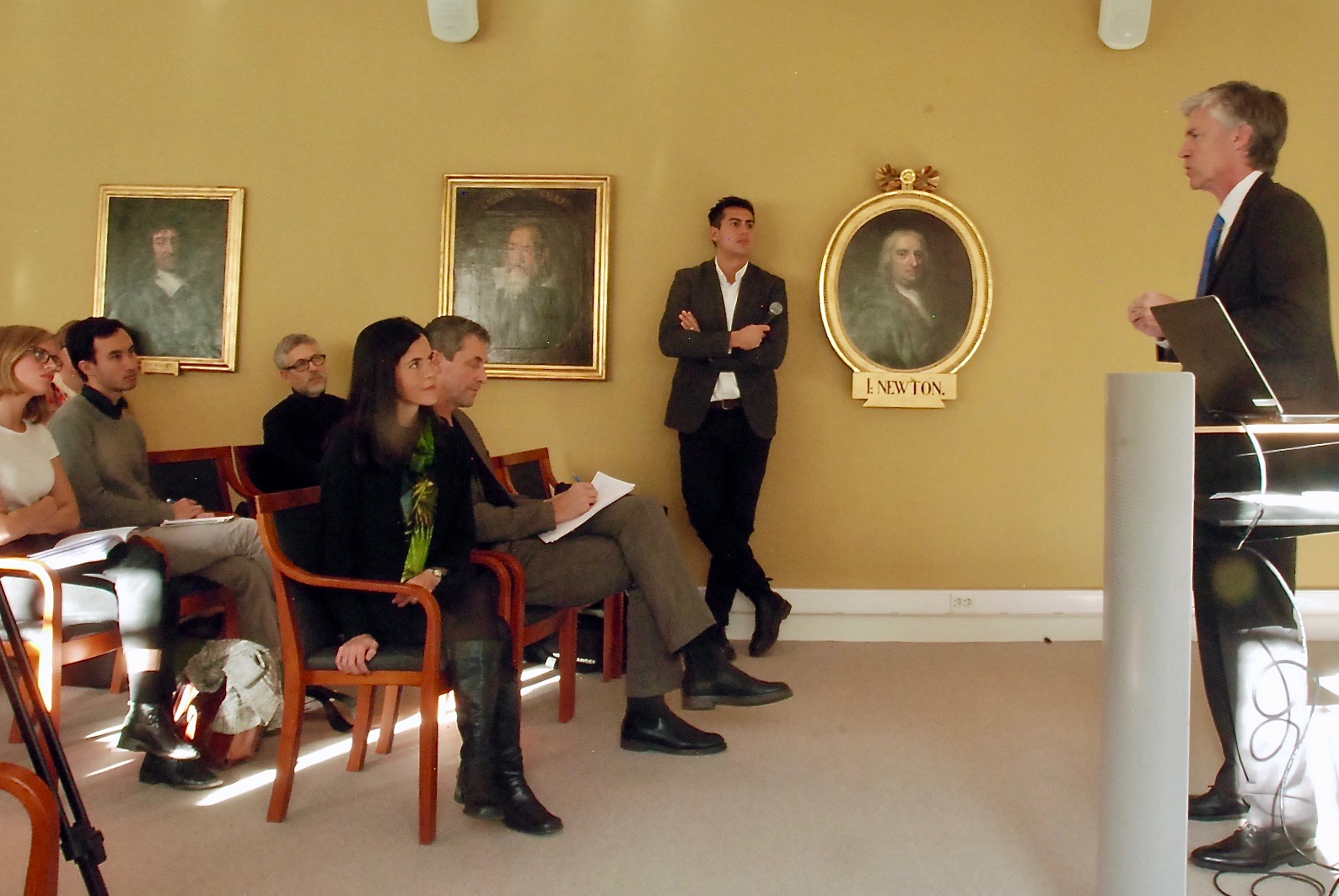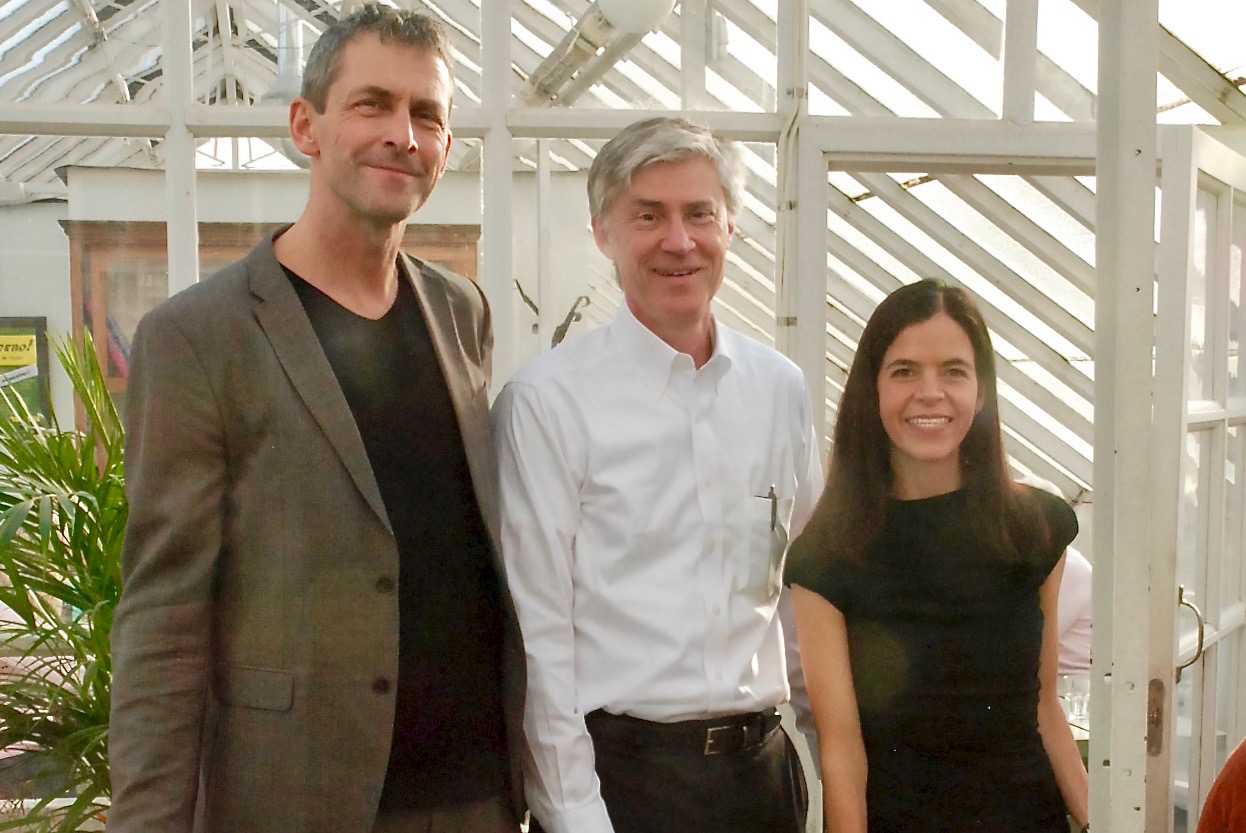 Story highlights
Story highlights
- Professor John Knox, the first ever UN Special Rapporteur on human rights and the environment, presented in Stockholm the results of his global consultation on the interdependence between these
- The main finding of the world consultation was that a healthy environment and the exercise of human rights closely depend on each other
- Enjoying access to information, participation in decision making, and access to remedies is a key condition to exercise environmental rights
- Protecting human rights of environmental defenders is key for protecting biodiversity, which underpins human wellbeing
- There is a need for regulations addressing social-ecological dynamics across scales affecting human rights of the most vulnerable at the local level
Biodiversity and human rights took centre stage at several events in Stockholm in October when Prof. John Knox, the first ever UN Special Rapporteur on human rights and the environment, presented the results of his global consultation on the interdependence between them.
Professor Knox presented the outcomes of his work as UN Independent Expert and Special Rapporteur in the Stockholm Seminar held the 20th of October at The Royal Swedish Academy of Sciences. He shared the floor with Professor Jonas Ebbesson and Dr. Claudia Ituarte-Lima, who are engaged in a collaboration to understand and promote recognition of the human rights and environmental nexus.
The focus of the seminar was on human rights, climate change and biodiversity. Prof. Knox highlighted that international cooperation is necessary to effectively address biodiversity loss and climate change. Many of the components of biodiversity and the benefits that biodiversity provides to people have transboundary or global dimensions. Biodiversity is increasingly also affected by climate change.
He also recognised that there are linkages between human rights and biodiversity. For example, many medicines derive from natural products which shows the dependence of human healthcare on biodiversity. Throughout history, humans have relied on biodiversity as a source of medicine. Knox described how Catharanthus roseus, the Madagascar rosy periwinkle was first used as a traditional medicine and then became the basis for successful treatments of childhood leukemia and Hodgkin’s lymphoma.
The UN Special Rapporteur on human rights and the environment, Prof. John Knox, gives a Stockholm Seminar at the Royal Swedish Academy of Sciences
Although most countries in the world have constitutions that recognise the rights to a healthy environment, the UN Human Rights Council was lagging behind in explicitly recognising the nexus between human rights and a healthy environment until Professor Knox was appointed as an independent expert and thereafter Special Rapporteur.
Starting in 2012, Professor Knox and his team held consultations all over the world and did an inventory of all the treaties, tribunals and other legal proceedings where human rights laws had been applied to environmental cases. Knox and a team of global law professionals and pro bono lawyers pulled together the outcomes of all these proceedings and found that they all reached the same two conclusions:
- A healthy environment is necessary for the full enjoyment of human rights
- The exercise of human rights is vital to the protection of the environment
Broadly speaking, science accepts that biodiversity underpins human wellbeing, but Knox explained that an important part of his mandate was to ground that principle in human rights terms – to translate between the sciences and human rights law and clarify the importance of healthy ecosystems and biodiversity for the full enjoyment of human rights.
As emerging from the expert consultation on clarifying pathways for safeguarding human rights whilst maintaining healthy ecosystems and biodiversity:
“Biodiversity is a human rights issue. As part of the consultation, we tried to clarify the obligations of States including those concerning individuals and groups who are in vulnerable situations, such as environmental human rights defenders. Often, people in rural areas who directly depend on biodiversity for their survival are especially vulnerable to degradation and/or restrictive access to healthy ecosystems and biodiversity” Dr. Claudia Ituarte-Lima
Current rates of biodiversity loss and the failure of states to prevent habitat loss and degradation elevate the urgency to find examples of sustainable practices to learn from. Knox highlighted the activities of indigenous peoples in protecting forests, wetlands and other areas of high biodiversity. Nonetheless, he said that the increasing number of environmental defenders who are killed annually reveals that,
“The biodiversity crisis is a human rights crisis, and we have to react accordingly” Prof. John Knox
Professor Jonas Ebbesson, Chair of the UNECE Aarhus Convention Compliance Committee, addressed the key role of three participatory rights necessary in making the difference between someone having environmental rights recognised in law to actually enjoying such rights:
- Having access to relevant information
- Effectively participating in decision-making
- Access to remedies for all, not only for those who can afford it
Dr. Claudia Ituarte-Lima considered that the nexus between biodiversity, climate change and human rights demands rethinking obligations to respect, protect and fulfil human rights. She reflected on the fact that social-ecological dynamics across scales affect human rights at the local level, which makes it necessary to establish regulations for both state and non-state actors that fit these dynamics and implement the human rights principles in practice. The Sustainable Development Goals and Agenda 2030 consider both sustainability and human right as a cross-cutting issue. Dr Ituarte-Lima advanced a call to work in an even more integrated way, across geographical boundaries, disciplines, and branches of law.
John Knox (centre) with Jonas Ebbesson (left) and Claudia Ituarte-Lima (right)
John Knox is the first Independent Expert on human rights and the environment appointed by the UN Human Rights Council in 2012. The mandate was renewed for another three years in 2015 as Special Rapporteur. Mr. Knox was appointed as the first Special Rapporteur in 2015.
Jonas Ebbesson is Dean of the Faculty of Law and Professor of Environmental Law, Stockholm University and Chair of the UNECE Aarhus Convention Compliance Committee. He is also Director of the Stockholm Environmental Law and Policy Centre, Stockholm University. In his research, Professor Ebbesson essentially focuses on transboundary dimensions of environmental law.
Claudia Ituarte-Lima is international environmental law advisor for SwedBio at Stockholm Resilience Centre (SRC) and researcher at SRC. She holds a PhD from University College London. Dr Ituarte-Lima specialises in legal and governance transformations for sustainable development and environmental justice with a focus on the biodiversity, climate change and human rights law nexus.
The Stockholm Seminars are organised by Albaeco, Stockholm Resilience Centre, the Beijer Institute of Ecological Economics, Future Earth and the Swedish Secretariat for Environmental Earth System Sciences (SSEESS). In this occasion, the Stockholm Seminar was also co-convened by the Stockholm Environmental Law and Policy Center.
Watch the video of the Stockholm Seminar ” Human rights, climate change and biodiversity” here:
Part one – video starting at minute 13.50
Part two



 Private: Claudia Ituarte Lima
Private: Claudia Ituarte Lima